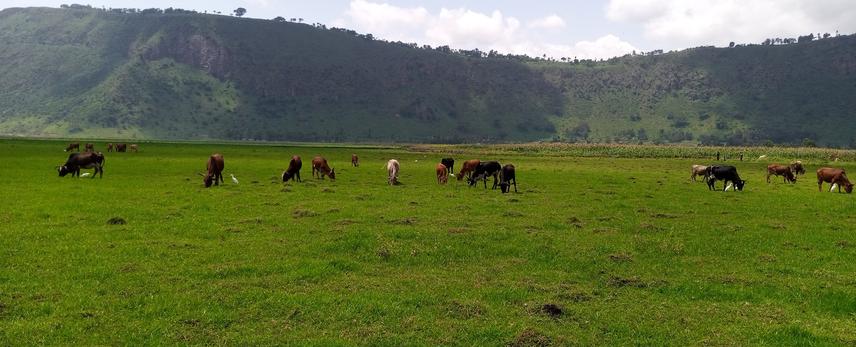Mikias Biazen
Other projects
11 Jan 2023
Strengthening Community Capacity to Undertake Black-tailed Godwit and its Habitat Conservation in Cheleleka Wetland, Wondo Genet, Ethiopia
Wetlands are among the most important ecosystems on earth and functioned as the kidneys of the earth, which play an important role in maintaining ecological service functions for both flora and faunas (Junhong et al., 2013). Ethiopia is gifted with diverse ecosystems in which diverse flora and fauna as well as microbial resources are found (Diriba and Leta, 2021). However, with the rapid growth in human populations, wetlands are nationally suffering from serious degradation or loss of habitats. Wetland degradation is often caused by multiple drivers, some of which are site based, while others are regional or global in scope. Cheleleka wetland is one of the highly degraded areas which are found in the Lake Hawassa Watershed of Central Rift Valley of Ethiopia. Ecologically, it is used as an instrumental in water storage, filtration and supply, flood control; perform sediment, nutrient and toxins retention functions and habitats for biodiversity of both flora and fauna. The wetland is a very important area for the sustainable livelihoods of the communities. Majority of the surrounding farmers living around wetland got economic benefit such as fishing, growing crops, grazing, settlement, cleaning and drinking water for humans and livestock.

Overgrazing of wetland by animals and partial veiw of expansion of farmlands (Maze farming) into wetland.
As compared to other ecosystems, rates of wetland degradation and habitat loss have been greater, primarily due to infrastructure development, land cover change, expansion of agriculture, settlement, intensive grazing, building of factories into their habitats and all these contribute towards the degradation of wetlands. The wetland is very conducive for different types of bird species. However, due to the degradation of wetland, bird’s species such as Black-tailed Godwits has becoming threatened and degraded from the area. This species is recorded as a near threatened and endangered bird species by IUCN red list (Amare and Zelalem, 2020). Therefore, conserving the surrounding forest, and restoring the degraded wetland areas are very crucial to protect biodiversity and ecosystem services provided by the wetland and surrounding forest resources. Thus, the current project is designed to address the following objectives:
1. Assess the existing impact of human activities on the wetland resources and its effect on Black-tailed Godwit status and habitat.
2. Identify the major driving forces, challenges and its consequences on the surrounding environment.
3. Improve local communities’ awareness on wetland resources management and conservation through community education and.
4. Improve future conservationist (school children or students) engagement in nature conservation through training and capacity building activities.